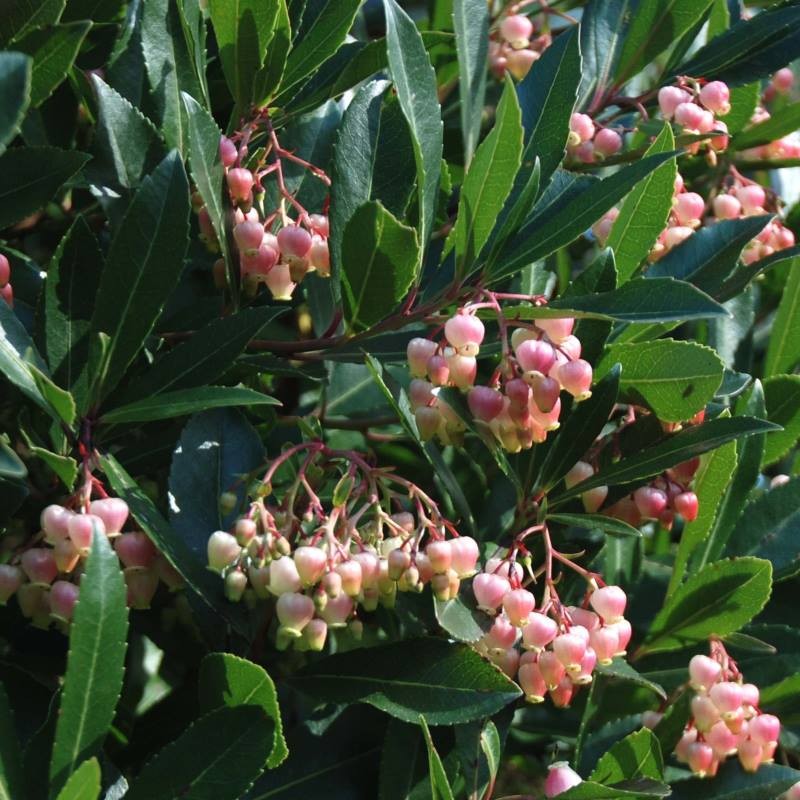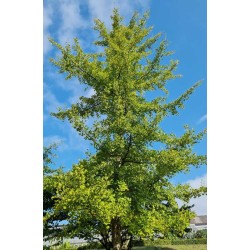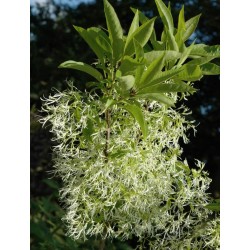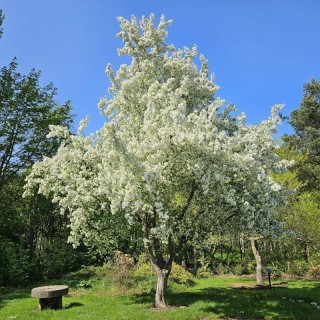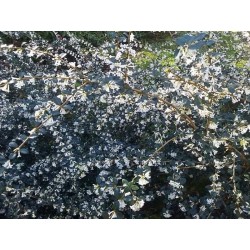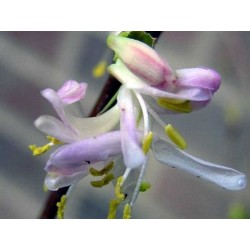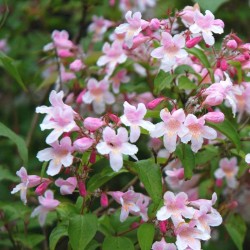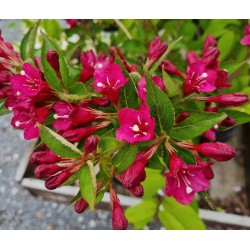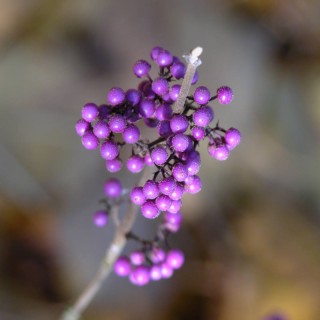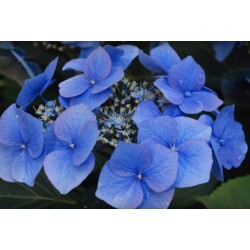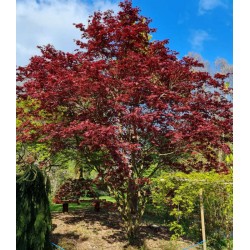- Home
- Offer - up to 30% off Selected Plants
- Trees & Shrubs
- Abelia
- Abeliophyllum
- Acer
- Acradenia
- Aesculus
- Ageratina
- Alnus
- Amelanchier
- Amelasorbus
- Amorpha
- Aralia
- Arbutus
- Aronia
- Asimina
- Atherosperma
- Aucuba
- Berberis
- Betula
- Brachyglottis
- Buddleja
- Buxus
- Callicarpa
- Calycanthus
- Camellia
- Caragana
- Carpinus
- Carya
- Caryopteris
- Castanea
- Catalpa
- Ceanothus
- Celtis
- Cephalanthus
- Ceratostigma
- Cercidiphyllum
- Cercis
- Chaenomeles
- Chimonanthus
- Chionanthus
- Chitalpa
- Choisya
- Cistus
- Cladrastis
- Clerodendrum
- Clethra
- Cleyera
- Colquhounia
- Coprosma
- Cornus
- Corokia
- Correa
- Corylopsis
- Corylus
- Cotinus
- Cotoneaster
- Crataegus
- Crinodendron
- Cytisus
- Daphne
- Davidia
- Decaisnea
- Desfontainia
- Deutzia
- Dichroa
- Diervilla
- Dipelta
- Dipteronia
- Disanthus
- Distylium
- Drimys
- Elaeagnus
- Eleutherococcus
- Embothrium
- Emmenopterys
- Enkianthus
- Escallonia
- Eucalyptus
- Eucryphia
- Euonymus
- Exochorda
- Fagus
- Fatsia
- Ficus
- Firmiana
- Forsythia
- Fothergilla
- Franklinia
- Fuchsia
- Gardenia
- Garrya
- Gaultheria
- Gleditsia
- Griselinia
- Gymnocladus
- Hakea
- Halesia
- Halimodendron
- Hamamelis
- Hebe
- Hedera
- Heptacodium
- Hibiscus
- Hippophae
- Hoheria
- Holodiscus
- Hovenia
- Hydrangea
- Hypericum
- Ilex
- Illicium
- Indigofera
- Itea
- Jasminum
- Juglans
- Kalopanax
- Koelreuteria
- Kolkwitzia
- Laburnum
- Laurus
- Lavandula
- Leptospermum
- Lespedeza
- Leucothoe
- Leycesteria
- Ligustrum
- Lindera
- Liquidambar
- Liriodendron
- Lonicera
- Luma
- Maackia
- Maclura
- Maddenia
- Magnolia
- Mahoberberis
- Mahonia
- Malus
- Melliodendron
- Mespilus
- Metrosideros
- Mitraria
- Morus
- Myrtus
- Nandina
- Neillia
- Neoshirakia
- Nothofagus
- Nyssa
- Olearia
- Osmanthus
- Ostrya
- Oxydendrum
- Ozothamnus
- Pachysandra
- Paeonia
- Parrotia
- Parrotiopsis
- Paulownia
- Perovskia
- Phellodendron
- Philadelphus
- Phillyrea
- Phormium
- Photinia
- Phymosia
- Physocarpus
- Pieris
- Pistacia
- Pittosporum
- Platanus
- Platycrater
- Poliothyrsis
- Poncirus
- Populus
- Potentilla
- Prunus
- Pseudocydonia
- Pseudopanax
- Pseudowintera
- Ptelea
- Pterocarya
- Pterostyrax
- Pyracantha
- Pyrus
- Quercus
- Rehderodendron
- Rhamnus
- Rhaphiolepis
- Rhaphithamnus
- Rhododendron
- Rhus
- Ribes
- Robinia
- Romneya
- Rostrinucula
- Rubus
- Ruscus
- Salix
- Sambucus
- Sapium
- Sarcococca
- Sassafras
- Sinocalycanthus
- Sinojackia
- Skimmia
- Sophora
- Sorbaria
- Sorbus
- Spiraea
- Stachyurus
- Staphylea
- Stephanandra
- Stewartia
- Styrax
- Sycoparrotia
- Sycopsis
- Syringa
- Tamarix
- Tetracentron
- Tetradium
- Tilia
- Toona
- Trachycarpus
- Trochodendron
- Ugni
- Ulmus
- Vaccinium
- Viburnum
- Vinca
- Vitex
- Weigela
- Xanthoceras
- Zanthoxylum
- Zelkova
- Zenobia
- Conifers
- Climbers
- Herbaceous
- Acanthus
- Achillea
- Actaea
- Aegopodium
- Agapanthus
- Ajuga
- Alchemilla
- Anchusa
- Anemone
- Aralia
- Artemisia
- Arum
- Aster
- Astrantia
- Bergenia
- Brunnera
- Campanula
- Centaurea
- Cephalaria
- Crocosmia
- Dicentra
- Dierama
- Diplarrena
- Disporum
- Echinacea
- Epimedium
- Eryngium
- Eupatorium
- Euphorbia
- Galega
- Geranium
- Geum
- Helenium
- Helianthus
- Helleborus
- Hemerocallis
- Hemiboea
- Heuchera
- Hosta
- Inula
- Iris
- Kirengeshoma
- Kniphofia
- Lamium
- Libertia
- Ligularia
- Lysimachia
- Lythrum
- Monarda
- Nepeta
- Paeonia
- Penstemon
- Persicaria
- Phygelius
- Physalis
- Polemonium
- Pulmonaria
- Rodgersia
- Rudbeckia
- Salvia
- Scopolia
- Sedum
- Symphytum
- Thalictrum
- Tiarella
- Tricyrtis
- Verbena
- Veronica
- Veronicastrum
- Ferns
- Grasses
- Gift Vouchers
- All Plants currently in stock
- Plant Finder (Filter Plants by size, features, etc)
- Popular Categories
- About us
- About our Gardens
- Delivery
- Address & Opening Times
-
MenuBack
-
Trees & Shrubs
-
-
-
-
-
-
-
-
-
-
-
-
-
-
-
Shrub Size - SmallUnder 1.5 m (5 ft)
-
Shrub Size - Medium1.5 - 3 m (5 - 10 ft) once mature
-
Shrub Size - LargeOver 3 m (10 ft) once mature
-
-
-
Tree Size - Small4 - 8 m (13 - 26 ft) once mature
-
Tree Size - Medium8 - 15 m (26 - 50 ft) once mature
-
Tree Size - LargeOver 15 m (50 ft) once mature
-
-
-
Ground Cover PlantsLow and spreading
-
Columnar PlantsNarrow and Upright
-
Weeping PlantsPendulous and cascading branches
-
-
-
EvergreensEvergreen shrubs and trees
-
Suitable for containersTrees & shrubs for growing in pots
-
-
-
-
Conifers
-
-
Climbers
-
-
Herbaceous
-
-
Ferns
-
-
-
-
-
2-1
-
-
-
Grasses
-
- Gift Vouchers
-
Popular Searches
-
-
-
Newly listed plantsRecently added to our website
-
-
Spring Offer - £5 off website orders over £40
Spring Offer - £5 off
website orders over £40
Arbutus unedo
(Strawberry Tree) Arbutus unedo is a gorgeous evergreen shrub or eventually small tree with white or pale pink pitcher-like flowers in autumn followed by bright red, edible, strawberry-like fruit.
It is a fantastic plant for wildlife with the flowers being very popular with insects and in particular, butterflies. Most suited to a sunny position with a little shelter from strong winds.
1 x free Eupatorium purpureum (3L pot) with website orders over £40
Enter code FREEPLANT10 during checkout.
Perennial with flat purple-pink, flower heads in summer, popular with bees!
One free plant per person only. Excludes orders for gift vouchers.
Gorgeous evergreen shrub or eventually small tree with white or pale pink pitcher-like flowers in autumn followed by bright red, edible, strawberry-like fruit. These fruit can take up to a year to ripen and the previous years fruit can often be seen at on an Arbutus unedo at the same time as the current years flower. The flowers are very popular with insects and in particular, butterflies.
When established Arbutus unedo will develop a fantastic, peeling, mahogany coloured bark. Best planted in a warm position sheltered from cold winter winds.
- Position: Full sun or light, dappled shade.
- Soil: Any well drained, fertile soil. Arbutus unedo is reasonably tolerant of chalky soils but will grow better in slightly acidic conditions.
- Hardiness: Reasonably hardy. Arbutus unedo is wind tolerant in coastal areas but prefers some shelter in cold gardens.
- Flowering Period: September - November.
- Flower Colour: White to Pinkish-red
- Rate of Growth: Slow to moderate.
- Habit: Large shrub or very small branching tree with a rounded crown.
- Height: 5 m (16 ft)
- Spread: 5 m (16 ft)
- Notes: Arbutus unedo is reasonably tolerant of atmospheric pollution and a good choice for urban gardens.
Further Information
A native of South Western Ireland and the Mediterranean, in mild coastal areas this choice species is completely wind proof, but in colder inland gardens such as here, it benefits from a little shelter. Young plants will benefit from the protection of fleece or even Christmas tree branches arranged as an igloo over the Arbutus for the first couple of winters.
The fruit produced from a specimen in our own gardens are edible but with a bland flavour this far north in Derbyshire. In Mediterranean areas the fruits are one of the main ingredient of an alcoholic liqueur.
A member of the Rhododendron family, the genus Arbutus is remarkable amongst ericaceous plants for being tolerant of lime or chalky soils.
Extract from an information poster in our arboretum
- How Much Sun
- Light Shade, Full Sun
- Eventual Size
- Shrub - Large (3m+), Tree - Small (4m - 8m)
- Growing Conditions
- Soil: Acid, Soil: Alkaline, Soil: Dry/Sandy
- Special Features
- Fruit - Ornamental, Ornamental Bark, Wildlife Friendly - Bees, Suitable for Containers, Evergreen, Flowers in Summer, Honey Fungus Resistant



















